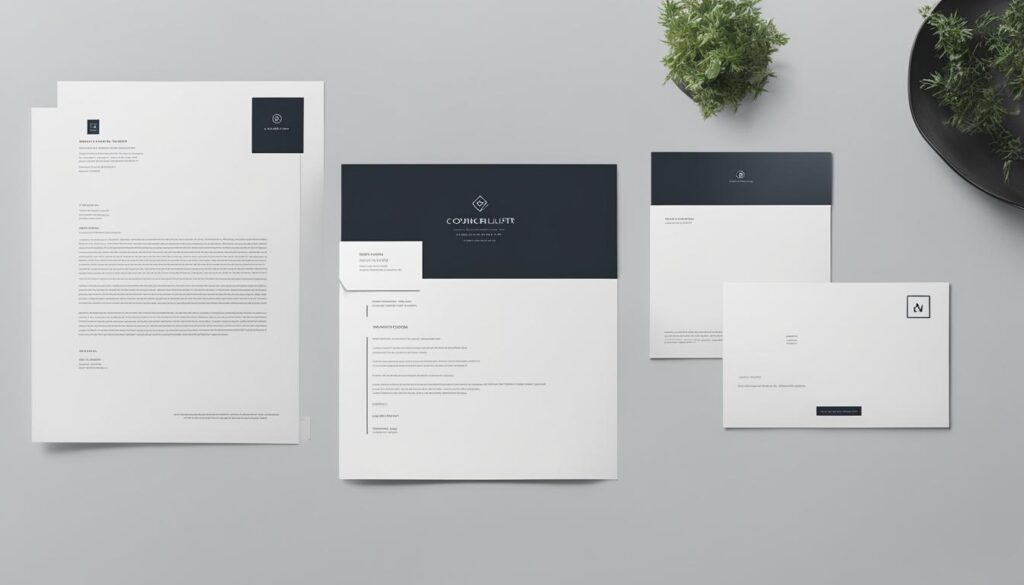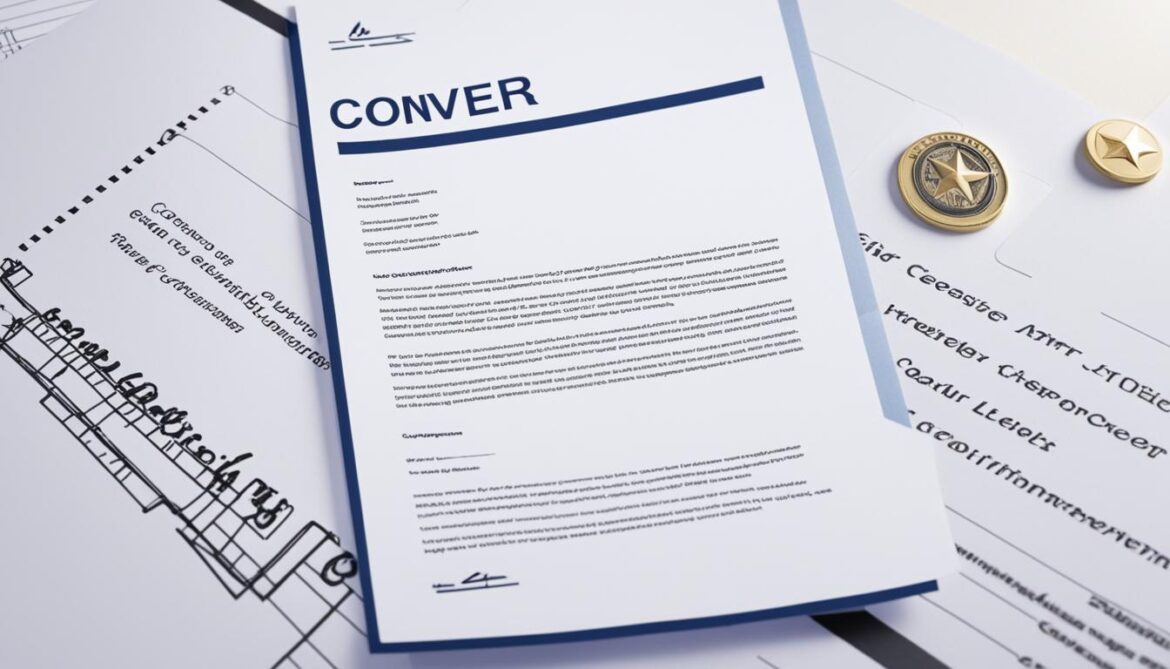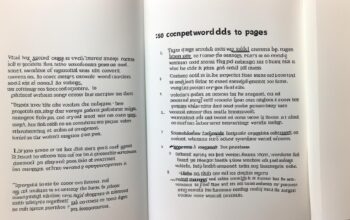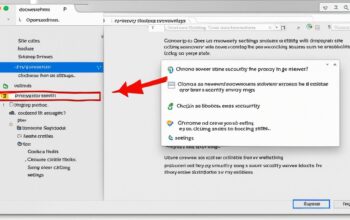When it comes to job applications, a short cover letter can make a big impact. In today’s fast-paced digital world, attention spans are short, and hiring managers appreciate concise and impactful communication. A short cover letter allows you to showcase your qualifications and align them with the job requirements efficiently. It saves time for both you and the hiring manager and demonstrates respect for their busy schedules. In this article, we will guide you through the process of writing an effective short cover letter and provide examples to inspire your job search.
Key Takeaways:
- A short cover letter can make a big impact on job applications.
- Concise and impactful communication is appreciated by hiring managers.
- A well-written short cover letter saves time for both you and the hiring manager.
- Writing an effective short cover letter involves showcasing your qualifications and aligning them with the job requirements.
- Examples of short cover letters can provide inspiration for your own job search.
Why Write a Short Cover Letter?
Writing a short cover letter has several benefits. Firstly, it saves time for both the applicant and the hiring manager, allowing for quicker evaluations. A concise letter ensures that every word you write directly contributes to showcasing your qualifications and aligns with the job requirements. Additionally, a brief and compelling letter is more likely to capture the attention of busy hiring professionals, increasing the chances of them reading it. Shorter letters are inherently clearer and easier to follow, allowing the reader to quickly grasp your key strengths and motivations. By crafting a thoughtful and concise cover letter, you demonstrate respect for the time constraints of hiring managers and convey your understanding of busy schedules and time management.
When writing a short cover letter, it’s important to focus on quality over quantity. By keeping it concise, you can make a strong impression in a short amount of time. Hiring managers often appreciate the brevity and precision of a well-crafted short cover letter. Instead of including unnecessary details or lengthy paragraphs, you can highlight your most relevant qualifications and experiences in a succinct manner.
Furthermore, a short cover letter allows you to tailor your message specifically to the job you’re applying for. By using keywords and phrases from the job description, you can demonstrate your understanding of the role and showcase how your skills align with the company’s needs. This targeted approach can help you stand out among other applicants and increase your chances of getting an interview.
Overall, writing a short cover letter can be a highly effective strategy for capturing the attention of hiring managers and showcasing your qualifications in a concise and impactful way. With careful thought and preparation, you can craft a compelling short cover letter that sets you apart from the competition and increases your chances of securing your dream job.
Essential Elements of a Short Cover Letter
A well-structured short cover letter should include the following elements:
- Introduction: Briefly introduce yourself and mention the specific job position you’re applying for.
- Alignment with Job Requirements: Highlight one to two key qualifications or experiences that align with the job requirements, incorporating relevant keywords from the job description.
- Passion and Enthusiasm: Express genuine interest in the role and the company, showcasing your enthusiasm for the work and weaving in specific company values or missions.
- Value Proposition: Mention what you can bring to the organization in terms of skills, achievements, or potential contributions, using keywords from the job description to emphasize your suitability.
- Closing Statement: Politely thank the reader for their time and include a call to action, such as requesting further contact or an interview.
- Signature: Sign off with a professional closing and include your contact information.
Example of a Brief Cover Letter:
Here’s an example of a brief cover letter that incorporates these essential elements:
| John Doe | |
|---|---|
| Address | |
| City, State, ZIP Code | |
| Email Address | |
| Phone Number |
Dear Hiring Manager,
I am writing to apply for the [specific job position] at [company name]. With [number of years] of experience in [relevant experience], I am confident in my ability to contribute to your team and make a positive impact.
I am passionate about [specific field] and have a deep understanding of [specific skills or knowledge]. I am impressed by [company name]’s commitment to [specific mission or value], and I believe my expertise aligns perfectly with your requirements.
Throughout my career, I have [highlight achievements or contributions]. These experiences have equipped me with the skills to [describe how your skills will benefit the organization].
Thank you for considering my application. I would welcome the opportunity to further discuss how my qualifications align with [company name]’s goals and objectives. Please feel free to contact me at your convenience to schedule an interview.
Sincerely,
John Doe
Note: The above example is for illustrative purposes only. Feel free to personalize and modify it according to your own qualifications and experiences.
How to Write a Short Cover Letter
Writing an effective short cover letter involves several steps:
- Research and Preparation: Thoroughly research the company and job role to understand their specific needs and culture. Personalize your letter and address the hiring manager directly if possible, showing that you care about the details.
- Identify Key Qualifications: Select one to two qualifications or experiences that directly match the job requirements. Explain them briefly but with enough detail to showcase your competence and suitability.
- Prioritize Recent Relevance: Highlight your recent career experiences that are relevant to the job, focusing only on what is applicable and omitting unnecessary details.
- Optimize Content Sections: Identify the most critical sections, such as qualifications and value proposition. Allocate space judiciously, emphasizing only the most impactful content that aligns with the role.
- Condense and Simplify: Review your content for long phrases and unnecessary words, aiming to convey more with fewer words while maintaining clarity.
- Enhance Clarity and Readability: Ensure that your message is easy to understand and flows smoothly, avoiding ambiguity and utilizing clear and concise language.
- Review, Refine, and Proofread: Carefully review your short cover letter for conciseness and relevance, eliminating any additional words. Proofread for spelling and grammar errors, using tools or software to assist you if needed.

By following these steps, you can craft a compelling short cover letter that captures the attention of hiring managers and highlights your qualifications in a concise and impactful manner.
Short Cover Letter Examples
To provide inspiration for your own short cover letter, here are a few examples based on different job stages:
Internship Short Cover Letter Example
A cover letter for an internship that highlights relevant skills and experiences, demonstrating enthusiasm for the role and the company.
Entry-Level Professional Short Cover Letter Example
A cover letter for an entry-level position that showcases academic achievements, relevant work experience, and a strong interest in the company.
Short Application Letter Sample for Any Position
A versatile cover letter template that can be customized for various job applications, emphasizing skills and qualifications that align with the company’s needs.
| Name | Position | Company |
|---|---|---|
| John Smith | Marketing Intern | ABC Company |
| Jane Doe | Entry-Level Accountant | XYZ Corporation |
| Michael Johnson | Project Manager | 123 Industries |
The Power of a Well-Crafted Application Letter
An application letter, also known as a cover letter, is a crucial component of your job application. It acts as your personal advocate, presenting your qualifications, experiences, and aspirations in a concise and persuasive manner. A well-written application letter can significantly enhance your chances of securing an interview and ultimately landing your dream job. It allows you to showcase your career trajectory in more detail, demonstrate motivation and interest in the position, personalize your application to the specific job and employer, and address any potential concerns or gaps in your resume. By investing time and effort into crafting a compelling application letter, you can differentiate yourself from other applicants and make a lasting impression on hiring managers.
When writing an application letter, it’s essential to capture the reader’s attention from the beginning. Start with a strong introduction that highlights your qualifications and enthusiasm for the position. Use persuasive language to convey your skills and experiences, emphasizing how they align with the job requirements. Avoid generic and cliché phrases, instead opting for specific examples and achievements that demonstrate your value.
One effective strategy is to tailor your application letter to each job application. Research the company and the role to understand their needs and corporate culture. Incorporate keywords from the job description to show that you have a clear understanding of the position’s requirements. Personalize your letter by addressing the hiring manager directly if possible.
In addition to showcasing your qualifications, an application letter allows you to convey your motivation and interest in the position. Highlight why you are passionate about the work and how you align with the company’s values and missions. By expressing genuine enthusiasm, you can create a connection with the reader and demonstrate your commitment to the role.
Address any potential concerns or gaps in your resume within your application letter. If you have limited experience in a particular area, explain how your transferable skills and eagerness to learn make you a strong candidate. Be honest and transparent, offering solutions or opportunities for growth that you can bring to the organization.
Finally, end your application letter with a strong closing statement. Thank the reader for their time and consideration, and express your interest in further contact or an interview. Provide your contact information, including phone number and email address, to make it easy for the hiring manager to reach out to you. Sign off with a professional closing, such as “Sincerely” or “Best Regards.”
How to Write an Effective Application Letter
Writing an effective application letter requires careful attention to detail and a tailored approach. By customizing your letter to match the specific job description, familiarizing yourself with the company, and using a professional and formal tone, you can create a compelling application that stands out from the rest. It is essential to proofread the letter for grammar and spelling errors and ensure it is concise and to the point.
Highlighting your relevant qualifications and experiences is crucial in capturing the attention of the hiring manager. By showcasing your unique skills and genuine interest in the position, you can demonstrate your suitability for the job. To further guide and inspire you, we have provided outstanding application letter samples for different purposes, including a scholarship application letter and a short application letter for any position. These samples serve as a valuable resource for crafting your personalized and persuasive application letter.
Whether you are applying for a teaching position or any other role, putting effort into writing an effective application letter can significantly increase your chances of success. Remember to showcase your qualifications, maintain a professional tone, and proofread carefully. By following these guidelines and leveraging the provided samples, you can craft an outstanding application letter that commands attention and provides insight into your potential as a candidate.
FAQ
What is a short cover letter?
A short cover letter is a concise and focused document that accompanies a job application. It highlights the applicant’s qualifications and aligns them with the job requirements, using fewer words than a traditional cover letter.
Why should I write a short cover letter?
Writing a short cover letter saves time for both the applicant and the hiring manager. It allows for quicker evaluations, captures attention more effectively, and demonstrates respect for busy schedules.
What elements should be included in a short cover letter?
A well-structured short cover letter should include an introduction, alignment with job requirements, passion and enthusiasm, a value proposition, a closing statement, and a signature.
How do I write a short cover letter?
To write a short cover letter, start by researching the company and job role. Identify key qualifications that directly match the job requirements and prioritize recent relevant experiences. Optimize content sections, condense and simplify your writing, enhance clarity and readability, and carefully review and proofread your letter.
Can you provide examples of short cover letters?
Yes, we provide examples of short cover letters for different job stages, including internships, entry-level positions, and customizable templates for any position.
What is an application letter?
An application letter, also known as a cover letter, is a crucial component of a job application. It presents the applicant’s qualifications, experiences, and aspirations in a concise and persuasive manner.
How do I write an effective application letter?
To write an effective application letter, tailor it to the specific job description, familiarize yourself with the company, use a professional and formal tone, proofread carefully, keep the letter concise, and highlight relevant qualifications and experiences.







